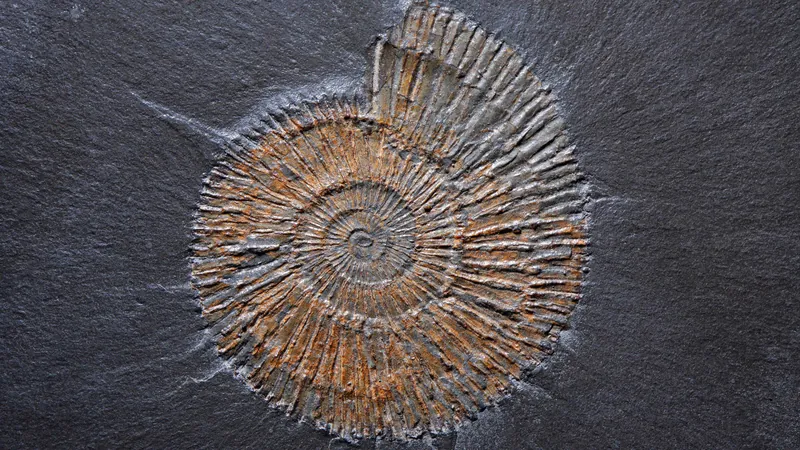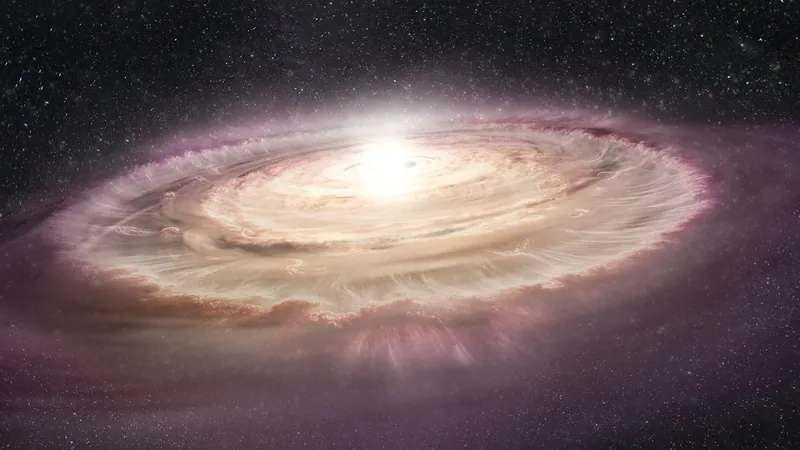
New Zealand Sets a New Precedent by Launching Public Fossil Database - A Treasure Trove for Paleontology!
2024-11-21
Author: Ming
Introduction
Fossils serve as fascinating windows into prehistoric ecosystems, revealing life's mysteries from the reign of colossal dinosaurs to the humble remnants of ancient flora. Now, New Zealand has taken a groundbreaking step by launching its very own comprehensive fossil database, making it the first nation worldwide to offer such an expansive resource to the public.
The Fossil Record Electronic Database (FRED)
Dubbed the Fossil Record Electronic Database (FRED), this initiative stems from decades of painstaking research. The roots of this project date back to 1946, when renowned geologist Harold Wellman and his team began meticulously cataloging fossil data into a hard-copy collection. Their efforts included detailed information about fossil locations, geological contexts, and descriptive attributes, all carefully stored for future generations.
Open Access for All
The brilliance of FRED lies in its open-access framework, which invites everyone—from seasoned paleontologists to enthusiastic amateurs—to explore, study, and contribute to this invaluable collection. As reported by Interesting Engineering, a team of four qualified curators from various universities rigorously reviews all submissions to maintain the highest standards of accuracy and reliability.
Current Status of FRED
Currently, FRED boasts over 100,000 fossil records, making it a vital resource not only for New Zealand but also for the surrounding Pacific Islands and even the remote Ross Sea region of Antarctica. While it may not be the largest fossil database globally, FRED’s focused approach to New Zealand’s paleontological heritage is unparalleled.
Implications for Research
The implications of this online resource are remarkable. Modern scientists are increasingly mandated to enter their fossil discoveries into FRED when preparing scientific publications and academic theses. For instance, a notable study in 2018 utilized FRED's data to reveal alarming trends in the extinction rates of mollusk species, highlighting troubling declines in populations both in New Zealand and the Caribbean.
The Future of FRED
Yet, the future of FRED hangs in a precarious balance. With ongoing funding cuts and staff layoffs threatening the project, its permanence is uncertain. As we look ahead, the significance of FRED not only lies in its current wealth of information but also in its potential to serve future generations of researchers and enthusiasts alike. Will New Zealand's initiative inspire similar efforts globally, or will it stand as a lone beacon of paleontological openness? Only time will tell.




 Brasil (PT)
Brasil (PT)
 Canada (EN)
Canada (EN)
 Chile (ES)
Chile (ES)
 España (ES)
España (ES)
 France (FR)
France (FR)
 Hong Kong (EN)
Hong Kong (EN)
 Italia (IT)
Italia (IT)
 日本 (JA)
日本 (JA)
 Magyarország (HU)
Magyarország (HU)
 Norge (NO)
Norge (NO)
 Polska (PL)
Polska (PL)
 Schweiz (DE)
Schweiz (DE)
 Singapore (EN)
Singapore (EN)
 Sverige (SV)
Sverige (SV)
 Suomi (FI)
Suomi (FI)
 Türkiye (TR)
Türkiye (TR)